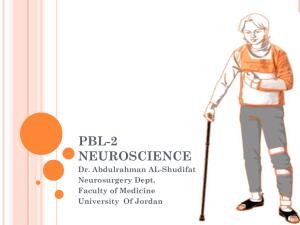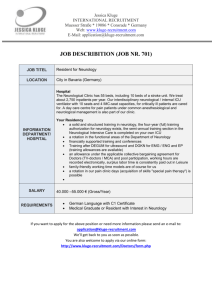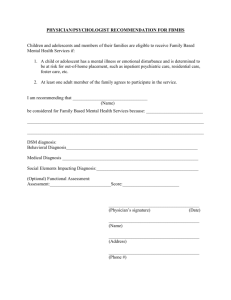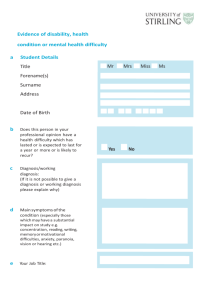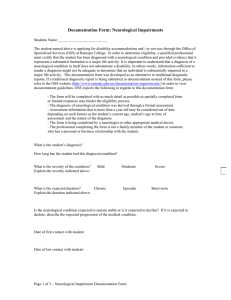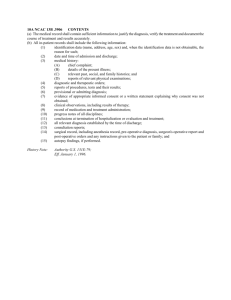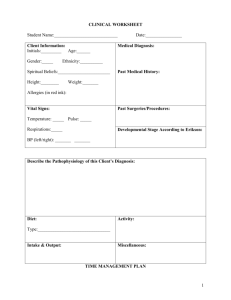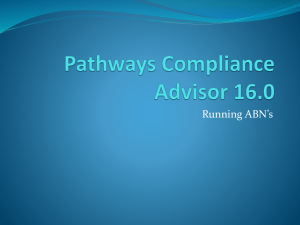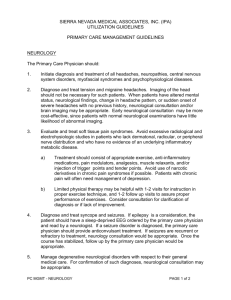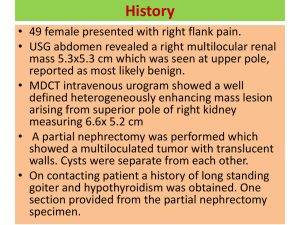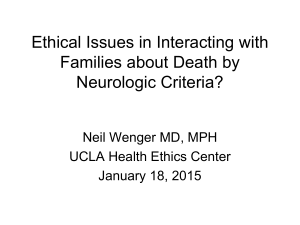Clerkship Learning Objectives: Medicine
advertisement
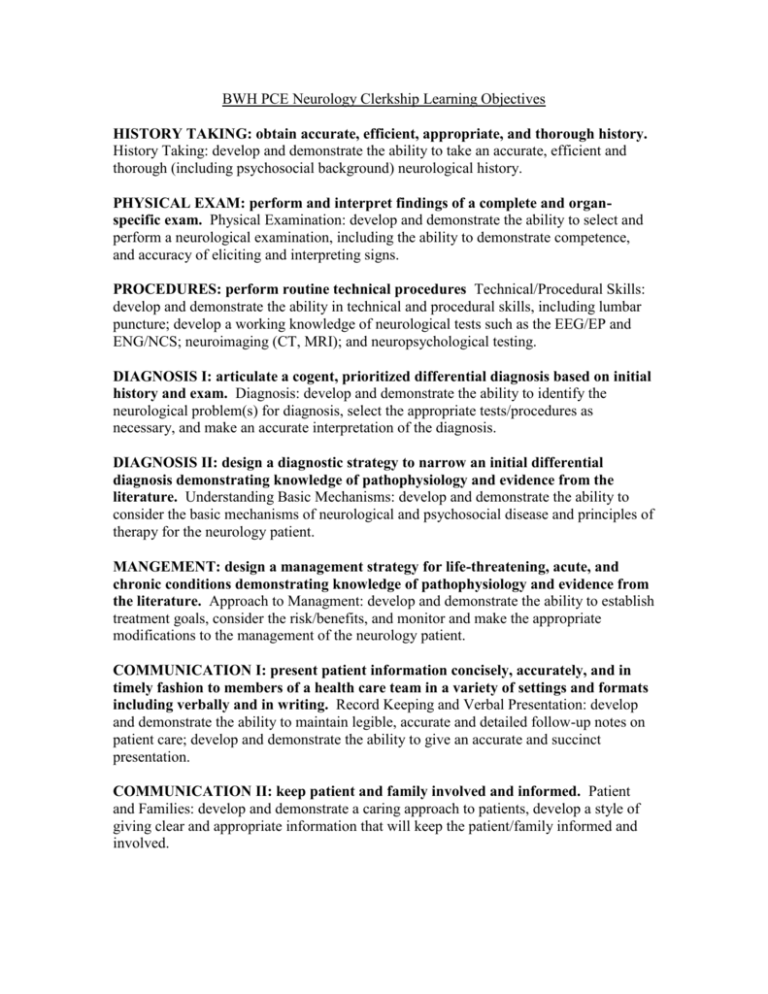
BWH PCE Neurology Clerkship Learning Objectives HISTORY TAKING: obtain accurate, efficient, appropriate, and thorough history. History Taking: develop and demonstrate the ability to take an accurate, efficient and thorough (including psychosocial background) neurological history. PHYSICAL EXAM: perform and interpret findings of a complete and organspecific exam. Physical Examination: develop and demonstrate the ability to select and perform a neurological examination, including the ability to demonstrate competence, and accuracy of eliciting and interpreting signs. PROCEDURES: perform routine technical procedures Technical/Procedural Skills: develop and demonstrate the ability in technical and procedural skills, including lumbar puncture; develop a working knowledge of neurological tests such as the EEG/EP and ENG/NCS; neuroimaging (CT, MRI); and neuropsychological testing. DIAGNOSIS I: articulate a cogent, prioritized differential diagnosis based on initial history and exam. Diagnosis: develop and demonstrate the ability to identify the neurological problem(s) for diagnosis, select the appropriate tests/procedures as necessary, and make an accurate interpretation of the diagnosis. DIAGNOSIS II: design a diagnostic strategy to narrow an initial differential diagnosis demonstrating knowledge of pathophysiology and evidence from the literature. Understanding Basic Mechanisms: develop and demonstrate the ability to consider the basic mechanisms of neurological and psychosocial disease and principles of therapy for the neurology patient. MANGEMENT: design a management strategy for life-threatening, acute, and chronic conditions demonstrating knowledge of pathophysiology and evidence from the literature. Approach to Managment: develop and demonstrate the ability to establish treatment goals, consider the risk/benefits, and monitor and make the appropriate modifications to the management of the neurology patient. COMMUNICATION I: present patient information concisely, accurately, and in timely fashion to members of a health care team in a variety of settings and formats including verbally and in writing. Record Keeping and Verbal Presentation: develop and demonstrate the ability to maintain legible, accurate and detailed follow-up notes on patient care; develop and demonstrate the ability to give an accurate and succinct presentation. COMMUNICATION II: keep patient and family involved and informed. Patient and Families: develop and demonstrate a caring approach to patients, develop a style of giving clear and appropriate information that will keep the patient/family informed and involved. PROFESSIONALISM I: be selfless, reliable, honest, and respectful of patients, colleagues and staff. Professional Relationships: develop and demonstrate the ability to form collaborative relationships and develop a style of giving clear and appropriate information, and demonstrate the ability to accept constructive criticism. PROFESSIONALISM II: take initiative and responsibility for learning, achieving personal growth and improvement, and supporting the learning objectives of others. Reliability/Integrity: develop and demonstrate the ability to develop and convey an enthusiastic attitude, be available when needed, and maintain composure under stressful situations. PROFESSIONALISM III: demonstrate knowledge and affirmation of ethical standards. Initiative/Self-Directed Learning: develop and demonstrate an eagerness to learn. THe student should identify his/her own questions about the practice of neurology, seek out answers to such questions, read the literature related to patients' neurological problems, and give a realistic evaluation of his/her own progress.
